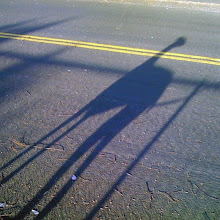Chekhov, Please
-from the stage direction that opens Act II of Chekhov's The Cherry Orchard
It's entirely possible that Chekhov never meant for his plays to be played, just read. That's particularly true for The Cherry Orchard, as his tuberculosis was so advanced he would die a year after completing the work. But even before then, he had moved to Yalta for his health and hadn't seen his plays performed until years after they made their Moscow debuts and the Moscow Art Theatre made a Crimean tour. His plays lived in his mind, no doubt, given how vividly they live on the page, but to perform them always seems nearly impossible, and not just because of the way he mixed comedy and tragedy no matter what he labeled a work. It's more because he saw and knew too much for living actors to bring it all forth without seeming to dip into too many representational bags at once.
This problem is perfectly framed by the generally moving and rewarding production of The Cherry Orchard playing at the Mark Taper Forum right now (we saw Saturday's matinee). Birds chirp as you first enter the Taper, and while that does help set the grand estate in nature, it also smacks of, as Amy put it, Disneyland. A production can't afford anything easy in a play about personal, historical loss, and sure, the sound design is also hoping to make the infamous "snapped string, dying away mournful" seem less incongrous by feeding us other sounds, too, but the snapped string is supposed to snap. It's a symbol that crashes like a cymbal in an otherwise realistic play, except for people falling down so much to show we're all weak, and for the old servant Fiers being left behind in a way he might as well have the word "past" taped to his back. But can the "snapped string" be mere symbol when all the characters hear the noise, too. Nothing is just for us in a Chekhov play, for if he can't quite imagine his plays produced, he can't quite imagine the audience, either, can he? perhaps that's the seceret to his vaunted objectivity, not that he doesn't have biases as a writer, but that he doesn't care a whit for our biases. Indeed each person on stage interprets the sound in character: the merchant Lopahin guessing its a mine shaft cable, ridiculous Gayeff imagining a fanciful heron, the student Trofimoff suggesting it's an owl, and Lyuboff, ever running at the whim of her nerve-endings, simply replying emotionally, "It's unpleasant, somehow."
For what can be done with the lovably frustrating people of this play? Annette Bening makes a fine Lyuboff because she has the carriage to pull it off--the role insists on a star. People have to feel her pull even when they realize she's become a bit ridiculous, and Bening can do that. She can react, too--so much of her character is just taking things in. Alfred Molina makes a perfect Lopahin, shading his voice with a bit of Cockney to remind everyone he's out of his class trying to mix in this company, the serf's son ever no matter his money. Director Sean Mathias even puts him on the stage for minutes before the play opens, so we get the future to start, just as we're left with the past/Fiers to end--one of the cleverer bits of staging.
But other roles don't quite work, and that might not be the actor's fault. Anya, as portrayed by Rebecca Mozo, comes off like Naomi Watts before her transformation scene in Mulholland Drive, yet Anya never gets a new register. Instead she's so bright-brimming-hopeful you almost expect the besotted with her Trofimoff to pop her one with one of his textbooks. Still, she's written in the play that way, so you can't quite blame Mozo. The same is true for Lothaire Bluteau's Gayeff, who must get shushed into nonsense talk about impossible billiard shots whenever he begins to speechify. It could be Chekhov never had it in his heart for this ineffectual brother, who doesn't even seem as bright a dreamer as his sister Lyuboff, who at least is ever lost in love. Gayeff's biggest moment is his paean to the bookcase, which hints he's more for what holds up ideas than the ideas themselves, and stresses the sentimental daffiness of the family, but never does much for Gayeff himself.
Still, this production truly nails Act II. The lighting runs from sunset to moonrise effectively, and a smattering of leafy shadow makes it seem this should be an idyll--and connects the play with Shakespeare in ways I'd never thought of before. Trofimoff's wise about the world if ignorant about himself speeches have great cleverness--he's the one character where all the contradictions make the most sense (but is that just because the character is most like me?). And the beggar who runs through at scene's end spooks and evokes pity, and that might be Chekhov in a nutshell. Lyuboff's ridiculous gesture of giving him a gold coin as that's all she has is at once bitter comedy and blasted tragedy--this woman means so well she will give herself away and not quite know she's doing it. How human of her.


0 Comments:
Post a Comment
<< Home